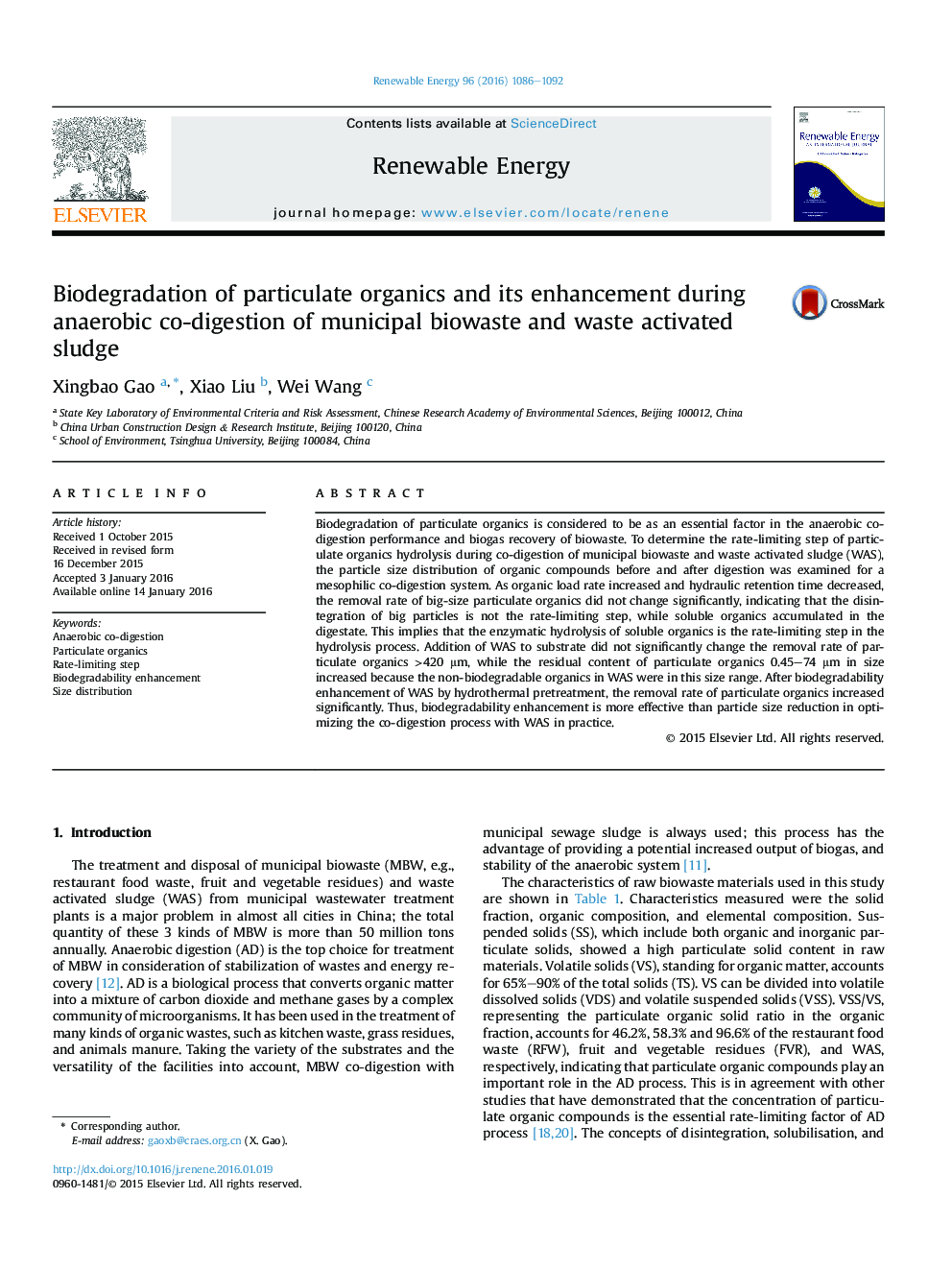| کد مقاله | کد نشریه | سال انتشار | مقاله انگلیسی | نسخه تمام متن |
|---|---|---|---|---|
| 299734 | 512442 | 2016 | 7 صفحه PDF | دانلود رایگان |
• The size distribution of organic compounds in substrate and digestate is measured.
• Hydrolysis of soluble organics is rate-limiting in particulate organics degradation.
• Biodegradability enhancement is more effective than particle size reduction.
Biodegradation of particulate organics is considered to be as an essential factor in the anaerobic co-digestion performance and biogas recovery of biowaste. To determine the rate-limiting step of particulate organics hydrolysis during co-digestion of municipal biowaste and waste activated sludge (WAS), the particle size distribution of organic compounds before and after digestion was examined for a mesophilic co-digestion system. As organic load rate increased and hydraulic retention time decreased, the removal rate of big-size particulate organics did not change significantly, indicating that the disintegration of big particles is not the rate-limiting step, while soluble organics accumulated in the digestate. This implies that the enzymatic hydrolysis of soluble organics is the rate-limiting step in the hydrolysis process. Addition of WAS to substrate did not significantly change the removal rate of particulate organics >420 μm, while the residual content of particulate organics 0.45–74 μm in size increased because the non-biodegradable organics in WAS were in this size range. After biodegradability enhancement of WAS by hydrothermal pretreatment, the removal rate of particulate organics increased significantly. Thus, biodegradability enhancement is more effective than particle size reduction in optimizing the co-digestion process with WAS in practice.
Journal: Renewable Energy - Volume 96, Part B, October 2016, Pages 1086–1092
